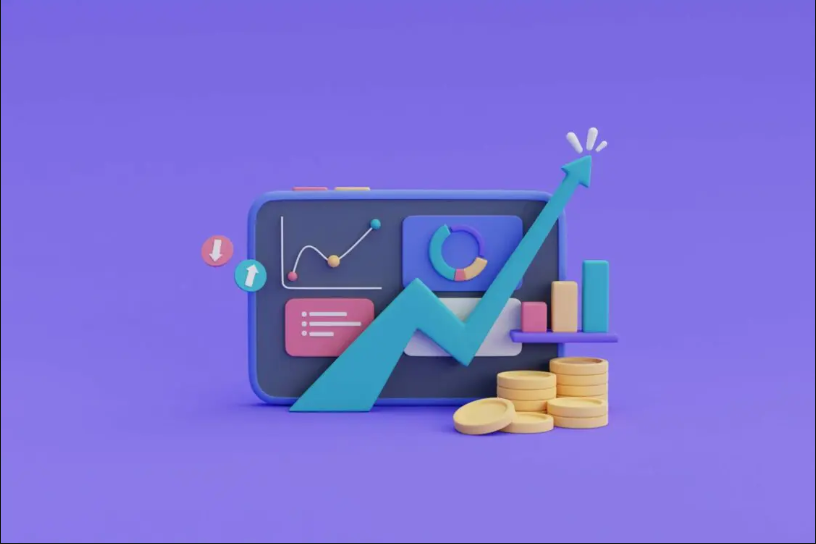The Creator economy is a new generation, a fast-paced market that arose in response to the growing popularity of digital technologies and their broad impact on individuals and the digital economy.
The creator economy started with individuals who are casual internet users. These individuals have become skilled internet-aware users, primarily making a career leveraging social media, software and digital financial tools to monetise their skill and knowledge as content creators, influencers, and YouTubers.
Before digitalisation, Creators had other media platforms like the radio, televisions, newspapers, CDs, and cassettes that could be leveraged, but they were limited. Not everyone could get featured on television, radio, or in newspapers. Not everyone could afford the cost of mass-producing CDs and cassettes and marketing them. Also, these means were limited by location.
With digital technologies, the narrative begins to change. People could now create content and have it reach anyone in the world. Digitalisation has given creators a superpower. It gave people a new way to express themselves and share their creations with the world.
Douglas Kendyson, CEO of Selar.co, an e-commerce platform that helps creators monetise their skills and knowledge via digital products, described the evolution of the creator economy in Africa as slower compared to the western countries.
“Unlike western countries, the evolution of the creator economy in Africa was a lot slower. While audience monetisation and sales of digital products dominated the early 2010s in western countries, it’s only become very mainstream amongst Africans in the last couple of years,” he said.
“Some can be traced back to smartphone and internet penetration growth over the years in Africa. This is because the creator economy works mostly on the internet. So as more internet and smartphone penetration grows, more people can be connected to creators and access their offerings.”
The creator economy has also contributed immensely to economic development. The creator economy contributes just over 6.1% to global gross domestic product (GDP), averaging between 2% and 7% of national GDPs worldwide.
Douglas mentioned that the economic contribution of the creator economy is unique because while most creators start alone, it’s never a one-person show for too long. Creators grow to be employers of labour of many internet skills as they cannot perform all their business functions as time passes, so they tend to hire digital marketers, designers, copywriters, and more.
“It’s also very important that more creators be treated as businesses because creators today are a powerhouse for the multimillion-dollar businesses of tomorrow,” he added.
Over the years, the rise of the creator economy has continued to change the psychology of African buyers and how people form their beliefs about a brand and its products and how those feelings translate to purchasing behaviours.
According to Eza Gutierrez, in her article on the future of marketing, the creator economy has created millions of creators and influencers – from mega-influencers with millions of followers to nano-influencers with less than 10,000. People now look for online reviews to determine if they want to buy a product or trust a brand.
The content creation market is a global phenomenon, raising over $1 billion in 2021 and growing to be worth over $100 billion this year, according to the reports on CB insights. It has provided an avenue for millions to earn a living over the internet. With the main access point being a mobile phone, Africans have opportunities to benefit and earn a living. With more Africans coming online every year and spending money online, it’s becoming increasingly feasible for African creators to leverage this attention and turn it into income.
According to Gbadebo Bello, content creator and tech enthusiast,” the number of curated content and creations by creatives is growing exponentially within and outside Africa. This growth has given rise to the need for tools and platforms that empower creatives. Some of these tools are being built(or have been made), but more representation is still needed in the creator economy startup space in Africa”,
There has been a rise in the digital and ancillary support industry; e-commerce platforms such as Selar, Africreators, and paystack are designed to help creators earn money by selling digital products and services such as e-books, online courses, memberships, arts and music items, coaching packages, stock photography, live and virtual events, speaking engagements. As a result, creators can focus on creating unique niche content that caters to their audience’s interests.
With more than a billion people in Africa, it goes to show there’s a massive market for creator platforms. Shopify, Amazon, Teachable and Udemy all exist and are making a killing in this same industry. The same can be said for platforms like Selar that are poised to help creators monetise their knowledge via digital products and membership.
In Africa, the creator economy is one of the biggest employers of labour. Young Nigerians have turned what was once considered ‘informal work’ into a viable industry creating employment, and are largely responsible for exporting Africa’s contents across the continent to the world.
Douglas commented on what the future holds for the creator economy: “I really believe anyone can be a creator in the future. We might not all be million-dollar-earning creators, but everyone has unique value they can offer an audience and community. Not everyone might be able to monetize their audience, but I definitely see a shift of more creators springing up; just like anyone can pick up a camera/camera phone and be a YouTuber, I see the same for the creator. More people realize they can cultivate an audience and offer value, no matter the size of the community.”
This article was contributed by David Akinfenwa, Business and Partnership Lead at BCSL (Publishers of Benjamindada.com)
Get passive updates on African tech & startups
View and choose the stories to interact with on our WhatsApp Channel
ExploreLast updated: November 22, 2024





